Marlborough, MA 1970, by Vincent Kling
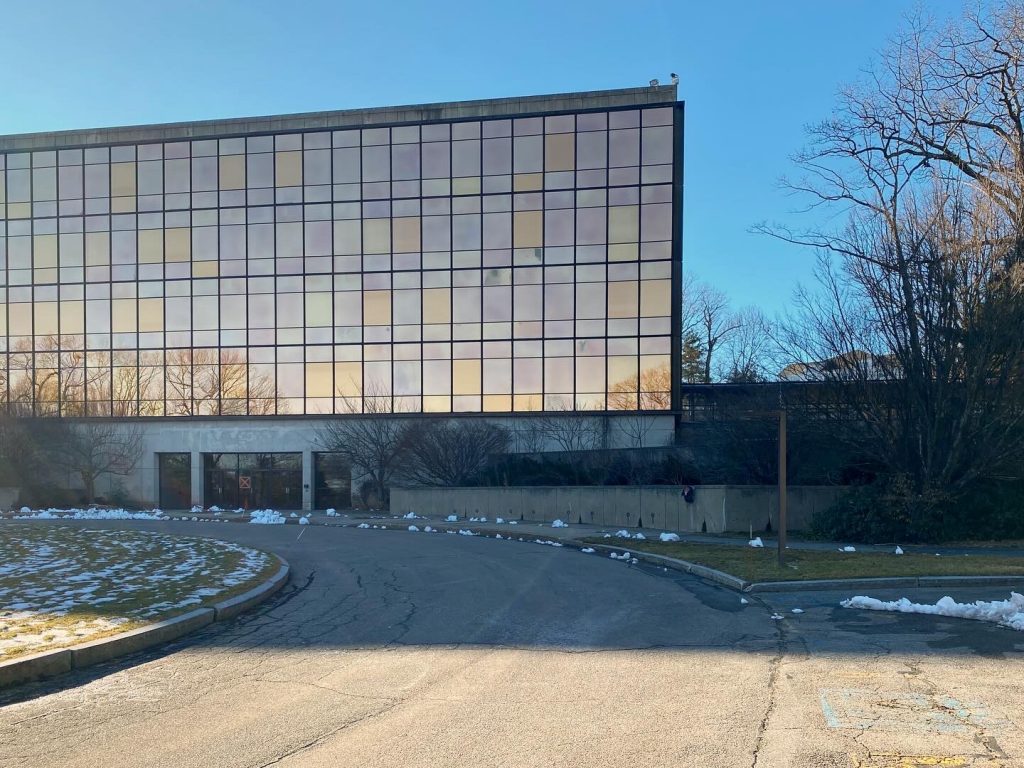

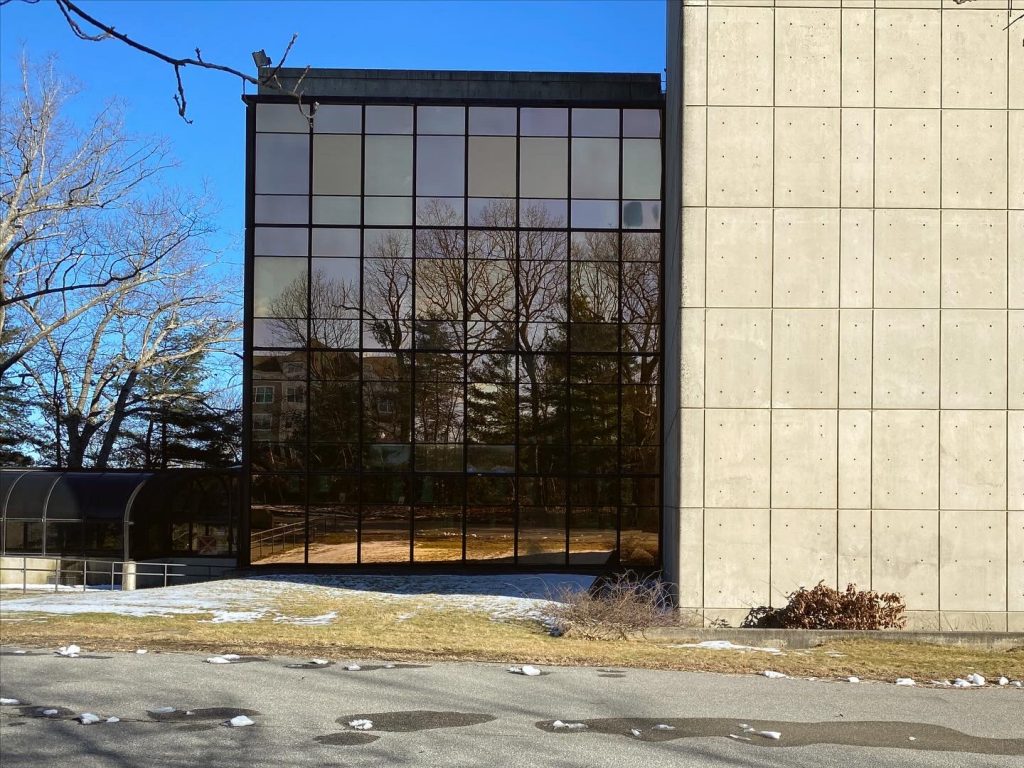
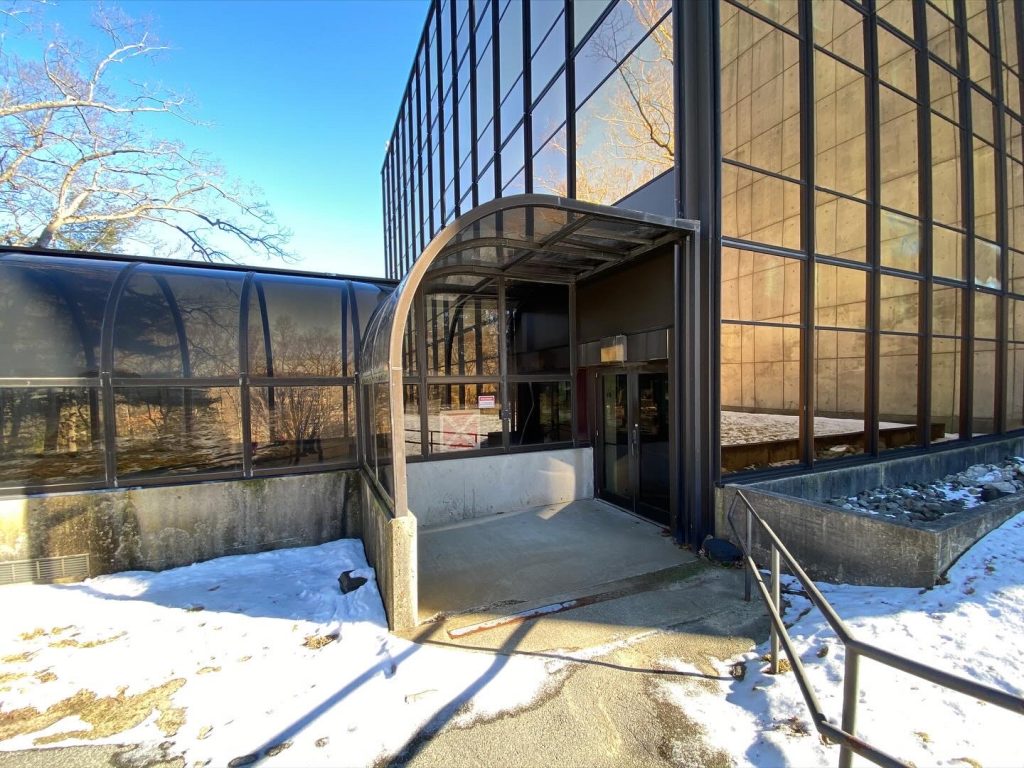



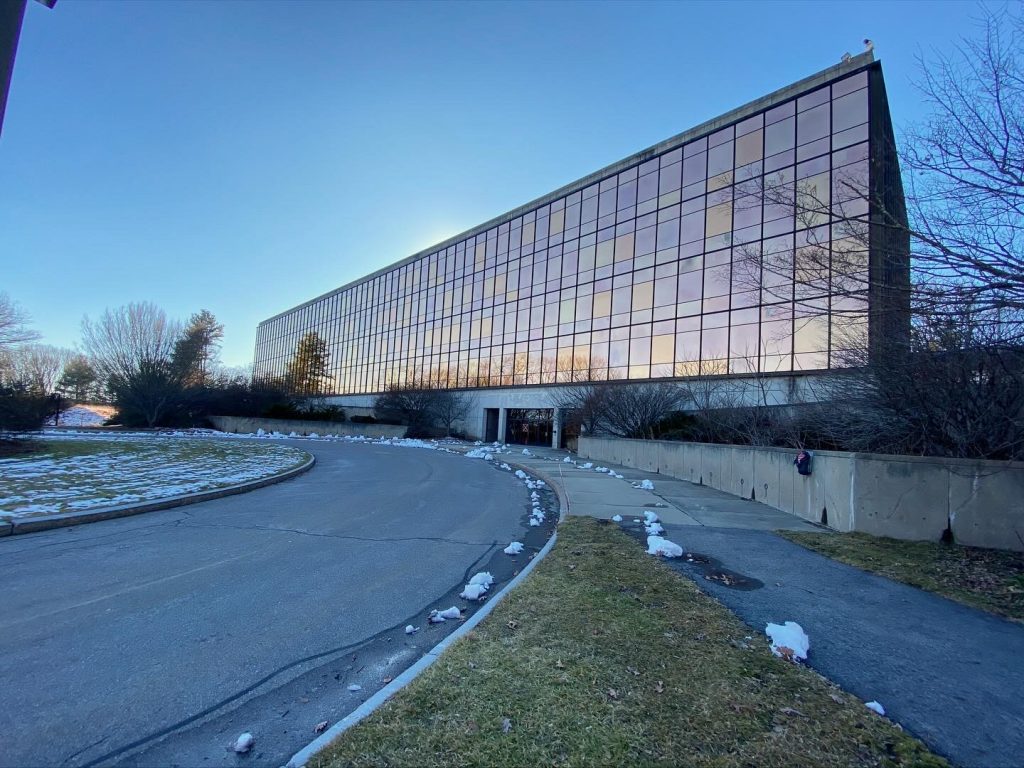
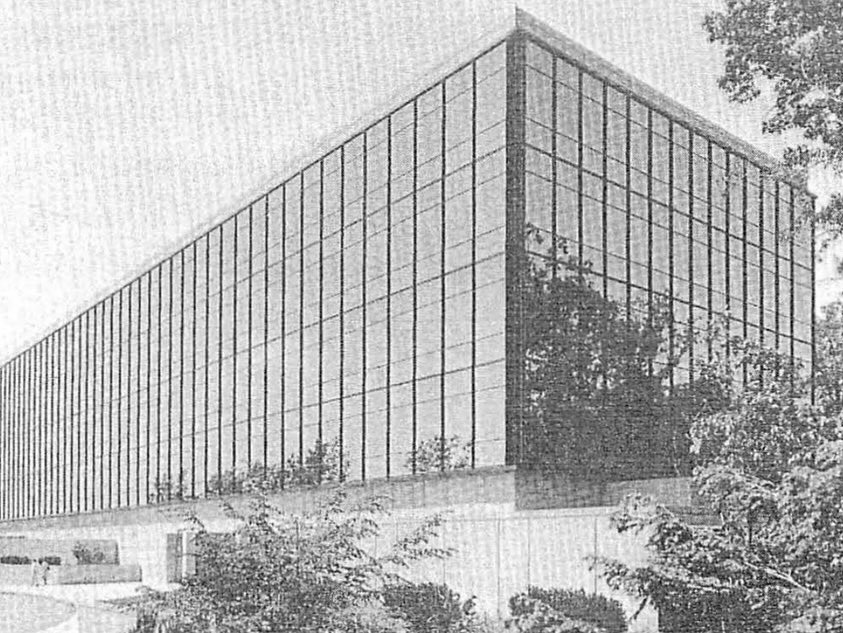
In a world dominated by the technology hub of Silicon Valley, it can be difficult to remember just how influential the Massachusetts tech scene was throughout the 20th century. In the 50s and 60s, the Route 128 highway encircling Boston saw the development of massive technology companies which themselves had grown out of the city’s world class universities, most prominently MIT and Harvard. As ‘America’s Technology Highway’ grew, many companies took the logical step outward and began developing along the newly created interstate 495 beltway. One such company was the massive RCA Corporation which hired noted Pennsylvania architect Vincent Kling to design their new computer services division headquarters and manufacturing site in Marlborough, MA which opened in 1970.
King’s mirrored copper window treatment contrasted with the near white concrete finish, creating an aggressively modern corporate office that stands out from its suburban office park setting. The curtain wall grid creates a strict geometry that sits on the concrete plinth that seems to extend in and out of the hill. On the rear facade, two massive concrete towers stick up behind the glass box, giving the illusion that they are lightly grazing the building. A pedestrian walkway reaches out from the office building to the manufacturing space, representing the only curve in the exterior facade.
These days, perhaps, the most striking decoration is the bright red and white X in its glass vestibule. Though built with an eye towards the future, the building quickly became a burden for RCA. A disastrous two years of stretching between their old New Jersey Office and the new Marlborough facility led to the collapse of RCA’s Computers division. From there, the building was bought by Digital Equipment Corporation (DEC) and passed through the hands of buyouts until being left abandoned by Hewlett-Packard Packard in the 2000s. Now it stands as a reminder of a time when Massachusetts was the king of technology and perhaps a warning of how quickly things can change.
SOURCES:
Fishman, Katharine Davis, “Programmed for Disaster: The Story of Rca’s $490 Million Computer Debacle”, The Atlantic,1972.
The Digital Equipment Corporation Museum Project, Marlborough, MA
Leave a Reply